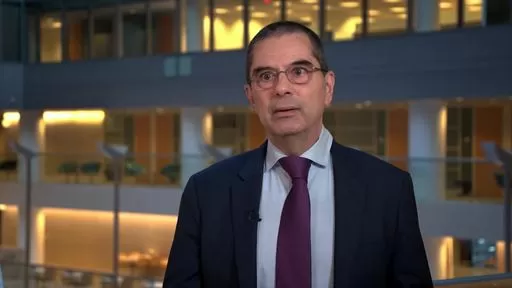The International Monetary Fund (IMF) has recently released a concerning statement regarding the global economy. According to Vitor Gaspar, head of the Fund’s Fiscal Affairs Department, countries’ debt is expected to exceed 100% of the global GDP. This announcement comes ahead of the launch of the IMF’s Fiscal Monitor report, which provides an in-depth analysis of the world’s fiscal policies and economic developments.
The IMF’s prediction is a cause for alarm as it highlights the growing debt burden that countries are facing. This is a significant increase from the previous year’s estimate of 96.2% and is the highest level of debt since World War II. The COVID-19 pandemic has played a significant role in this increase, with governments around the world implementing massive fiscal stimulus packages to support their economies.
Gaspar emphasized that this level of debt is unsustainable and could have severe consequences for the global economy. He stated, “High debt levels can limit the ability of governments to respond to future crises and can also hinder long-term growth prospects.” This is a valid concern as high levels of debt can lead to higher interest rates, inflation, and a decrease in investor confidence.
The IMF’s report also highlights the uneven distribution of debt among countries. Advanced economies, such as the United States and Japan, have the highest levels of debt, while emerging and developing economies have seen a rapid increase in their debt levels. This disparity could lead to a widening gap between the rich and poor countries, further exacerbating the global economic divide.
However, the IMF also acknowledges that the increase in debt was necessary to combat the economic fallout of the pandemic. Without these measures, the world could have faced a more severe economic crisis. The IMF has also praised the swift and coordinated response of governments and central banks in providing fiscal support to their economies.
Despite the concerning prediction, the IMF remains optimistic about the global economic recovery. The report states that the global economy is expected to grow by 6% in 2021, the fastest pace since 1980. This growth is primarily driven by the successful rollout of vaccines and the gradual reopening of economies.
The IMF has also urged countries to focus on implementing sound fiscal policies to ensure a sustainable recovery. This includes prioritizing investments in healthcare, education, and infrastructure, which can lead to long-term economic growth. The report also emphasizes the need for countries to address income inequality and climate change, which can have a significant impact on the global economy.
In response to the IMF’s report, many countries have already taken steps to address their debt levels. The United States, for example, has proposed a $2.3 trillion infrastructure plan, which aims to create jobs and boost economic growth. Other countries, such as Japan and Germany, have also announced plans to reduce their debt levels in the coming years.
The IMF’s prediction serves as a wake-up call for countries to take action and address their growing debt levels. It also highlights the need for international cooperation and coordination to ensure a sustainable and inclusive recovery. The IMF has called for a “new multilateralism” that focuses on addressing global challenges and promoting economic stability.
In conclusion, the IMF’s prediction of countries’ debt exceeding 100% of the global GDP is a cause for concern. However, it also serves as a reminder of the importance of implementing sound fiscal policies and working together to address global challenges. With the right measures in place, we can ensure a sustainable and prosperous future for all.



